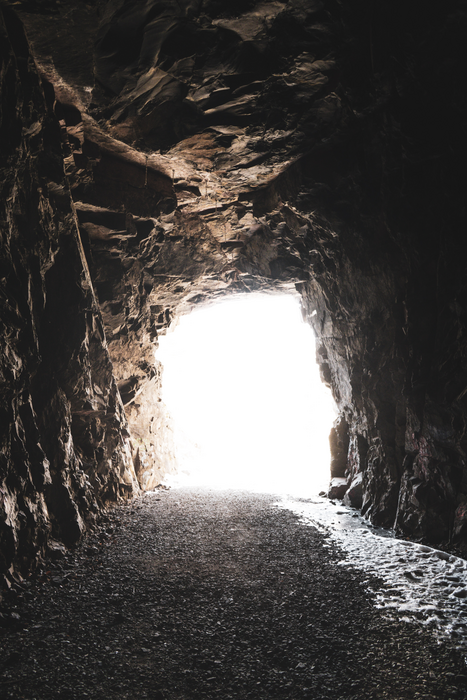A new study compares how people’s attitudes about death may change after a psychedelic drug experience versus a non-drug-related near-death experience or similar event, finding strong similarities and some differences between the two. Roland Griffiths of the Johns Hopkins University School of Medicine in Maryland, U.S. and colleagues present these findings in the open-access journal PLOS ONE on August 24, 2022.

Credit: Tony L, Unsplash, CC0 (https://creativecommons.org/publicdomain/zero/1.0/)
A new study compares how people’s attitudes about death may change after a psychedelic drug experience versus a non-drug-related near-death experience or similar event, finding strong similarities and some differences between the two. Roland Griffiths of the Johns Hopkins University School of Medicine in Maryland, U.S. and colleagues present these findings in the open-access journal PLOS ONE on August 24, 2022.
Previous research on psychedelic drugs suggests that they can alter people’s perceptions of death, such as by reducing their fear of dying. Near-death and other extraordinary experiences not involving drugs have similarly been linked to altered attitudes about death. However, few studies have directly compared these two types of experiences.
To surface new insights, Griffiths and colleagues analyzed online survey data from 3,192 people who reported alterations to their beliefs about death either after a non-drug near-death experience and similarly extraordinary non-drug experience, or after use of a psychedelic drug including lysergic acid diethylamide (LSD), psilocybin, ayahuasca, or N,N-dimethyltryptamine (DMT).
Statistical comparison of the survey results between the psychedelic group (n=2,259) and the non-drug group (n=933) revealed strong similarities in alterations to participant’s attitudes on death, including decreased fear of death. Most participants in both groups also rated their experience highly in terms of how personally meaningful and spiritually significant they felt it was. However, those with non-drug experiences were more likely to feel that it was the single most meaningful experience they had ever had.
Some of the survey questions were standard questions for measuring mystical and near-death experiences, and participants with psychedelic experiences rated higher on these measures. Compared to people who took psilocybin or LSD, those who took ayahuasca or DMT reported that the lasting consequences of their experience were stronger and more positive.
Future studies could help confirm these results by including more participants from different demographic backgrounds and by more precisely distinguishing between different non-drug experiences, such as near-death versus out-of-body.
This research could help inform investigations into the clinical use of psychedelics in treatment for mood disorders and other psychiatric conditions, such as end-of-life anxiety.
Roland Griffiths adds: “Not only can the features of psychedelic experiences be similar to Near Death Experiences, both are rated as among the most meaningful lifetime experiences and both produce similar enduring decreases in fear of death and increases in well-being.”
#####
In your coverage please use this URL to provide access to the freely available article in PLOS ONE: https://journals.plos.org/plosone/article?id=10.1371/journal.pone.0271926
Citation: Sweeney MM, Nayak S, Hurwitz ES, Mitchell LN, Swift TC, Griffiths RR (2022) Comparison of psychedelic and near-death or other non-ordinary experiences in changing attitudes about death and dying. PLoS ONE 17(8): e0271926. https://doi.org/10.1371/journal.pone.0271926
Author Countries: U.S.A.
Funding: Support through the Johns Hopkins Center for Psychedelic and Consciousness Research was provided by Tim Ferriss, Matt Mullenweg, Blake Mycoskie, Craig Nerenberg, and the Steven and Alexandra Cohen Foundation. Support was also provided by the Y.C. Ho/Helen and Michael Chiang Foundation. Support for Mary M. Sweeney and Sandeep Nayak was provided in part by National Institute on Drug Abuse Grant T32DA07209. Support for Roland R. Griffiths was provided in part by the Oliver Lee McCabe III Professorship in the Neuropsychopharmacology of Consciousness. The authors also acknowledge Karen C. Miller for her support and encouragement of this research. The funders had no role in study design, data collection and analysis, decision to publish, or preparation of the manuscript.
Journal
PLoS ONE
DOI
10.1371/journal.pone.0271926
Method of Research
Survey
Subject of Research
Not applicable
Article Title
Comparison of psychedelic and near-death or other non-ordinary experiences in changing attitudes about death and dying
Article Publication Date
24-Aug-2022
COI Statement
The authors declared the following potential conflicts of interest with respect to the research, authorship, and/or publication of this article: RRG and TCS are members of the Board of Directors of the Heffter Research Institute. TCS is director of the RiverStyx Foundation. This does not alter our adherence to PLOS ONE policies on sharing data and materials.




